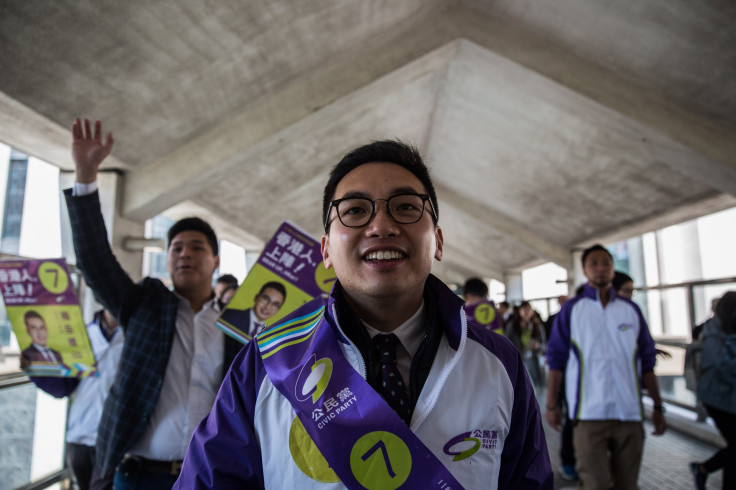Hong Kong By-Election: Pro-Democracy Candidate Alvin Yeung Wins, Radical Candidate Gains Foothold

Alvin Yeung, a candidate from Hong Kong’s pro-democracy Civic Party won a by-election held over the weekend, defeating the pro-establishment candidate, Holden Chow Ho-ding, and preserving the status quo between democratic and pro-Beijing forces in the Legislative Council.
“I think this election reflected that the people wanted the pan-democrats, the Civic Party and the legislature to reform. I also understand that some people voted for me not because they completely agreed with what the party and I did, but because they don’t want the seat to go into the hands of the pro-establishment camp,” Yeung, who won 37 percent of the votes cast, reportedly said.
Meanwhile, his rival Chow, who belongs to the Beijing-loyalist Democratic Alliance for the Betterment and Progress of Hong Kong, won nearly 35 percent of the votes cast.
However, Yeung’s victory was overshadowed by a stronger-than-expected performance by Edward Leung Tin-kei — a leader of the Hong Kong Indigenous group who was charged over Hong Kong’s Lunar Year riots. Leung, who was arrested earlier this month on a rioting charge and later released on bail, won 15 percent of the 434,000 votes cast.
“The bigger story is the extremely strong showing of the third-place candidate, who got an unexpectedly high share of the vote and suggests that Hong Kong Indigenous, or similar candidates, are well placed to win seats in the autumn elections,” Danny Gittings, an associate law professor at HKU Space, told Bloomberg, calling it a very bad news “for moderate members of the pan-democratic camp.”
Hong Kong Indigenous is one of the many groups that sprang up in the wake of pro-democracy street protests in 2014 that ended without a satisfactory resolution. The supporters of the movement say that Beijing is trying to erode the “one country, two systems” principle that has long governed the region.
The Chinese government, on its part, has condemned groups like Leung's, calling them "radical splitting forces."
“The localists will get ready for the September election, and I think from then on, the three blocs — pan-democrats, localists and pro-establishment — should stand neck to neck,” Leung reportedly said.
© Copyright IBTimes 2024. All rights reserved.






















